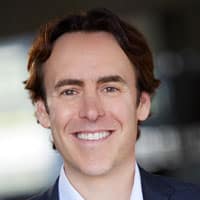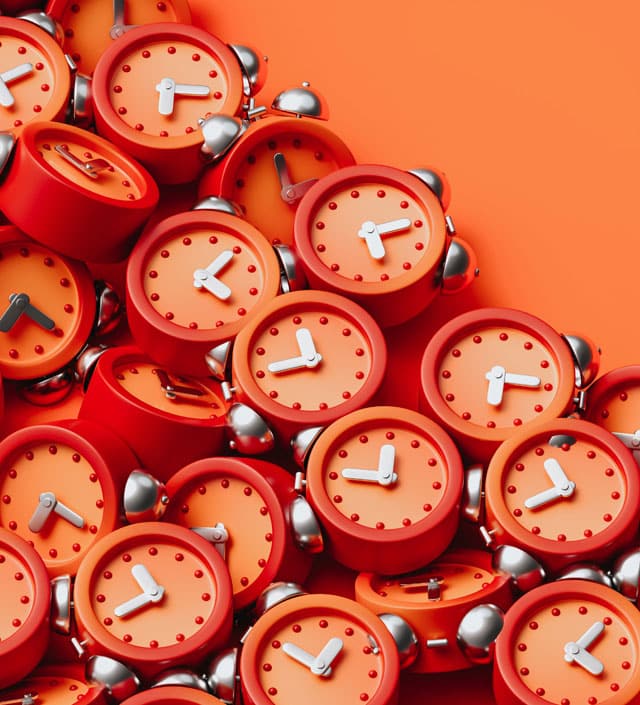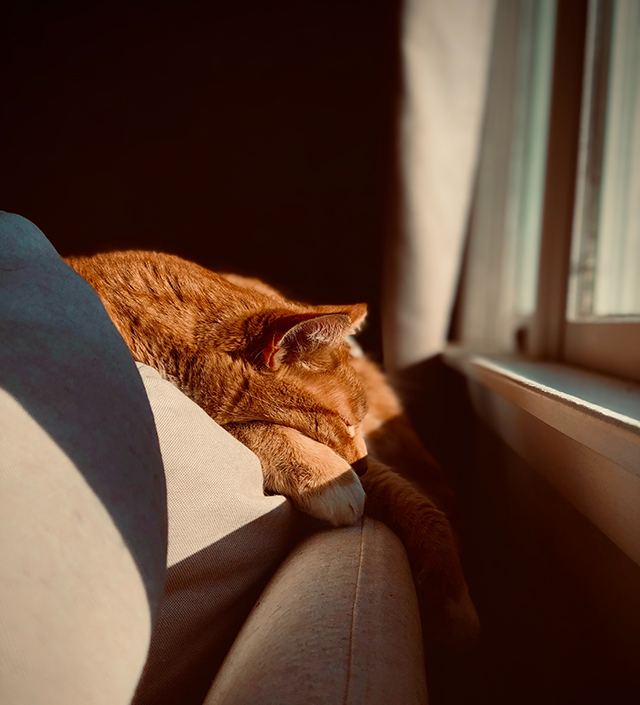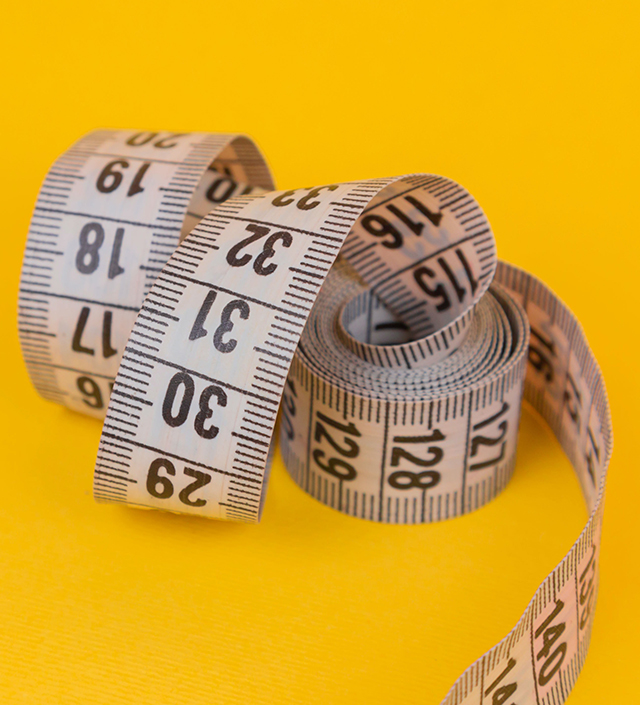You know that pesky nightlight peeking out from the back of your computer while you think you’re getting a good night’s sleep? Throw a cover over it or shut it off.
Are the colors on your dinner plate mostly green, red and yellow? If not, toss the contents and start all over.
And you may want to start filling your wine glass.

“Alcohol is controversial when it comes to brain health. But the Mediterranean diet says one glass of wine a day is okay, because it lowers the risk of dementia,’’ said Dr. Marc Milstein, author of “The Age-Proof Brain,’’ and a guest at the recent inaugural Longevity Book Club webinar presented by the Longevity Project at the Stanford Center on Longevity.
He also pointed to the school of thought that holds that moderate consumption of wine might have some anti-inflammatory impact.
“But you have to be very careful because there are conflicting studies that say there are some people who have a genetic problem with alcohol so it’s not beneficial,’’ said Milstein.
So when in doubt, it’s always best to discuss issues such as alcohol use with one’s doctor, he added.
Genes aren’t fully in charge
Milstein has a Ph.D. in biological chemistry and a B.S. in molecular, cellular and developmental biology from UCLA. He specializes in aging, longevity and neuroscience.
In his book, he says that one-third of all kinds of dementia could have been prevented by a change of lifestyle, and that more and more research says that we and not our genes control our cognitive function and brain health.
Numerous audience members at the recent webinar wanted to know how alcohol, sleep or the lack of it, and diet affect the brain; the questions were presented to Milstein by co-moderators Martha Deevy, associate director of the Stanford Center on Longevity, and co-moderator Ken Stern, the Longevity Project chair.
So why is sleep so important?
“When you sleep, your brain constricts, it shrinks, so it can squeeze out toxins and trash,” replied Milstein. “Day to day, the brain makes by-products and chemicals, and it needs cleaning … As we get older, the efficiency of that waste removal in the brain becomes less effective.”
Milstein punctured several misconceptions about sleep, such as that it’s bad to wake up during the night. Humans actually wake up about every 90 minutes; the important element in a good night’s sleep is to fall asleep again. We have what he called a “brain wash” about every 90 minutes.
According to Milstein, it’s also okay to have a midday nap. “We should find ways to prioritize a nap, which can be helpful but it is not a magic cure for sleep. Sleep is just one part of all of the things that are important for brain help, including stress management and diet. All these things work together,” he said.
An anti-Alzheimer’s diet
About diet, Milstein said that studies have shown that people who follow in moderation what’s known as the Mediterranean diet — whole grains, olive oil, fruits vegetables, beans, legumes, nuts, herbs, spices, fish and seafood — have lowered their risk for Alzheimer’s disease by 35%; those who follow it strictly lower their risk by 50%.
“There’s so much evidence how diet affects our brain, not just down the road, but an hour later. We feel more energetic. And the long-term impact is critical. There are these really basic tenets: What’s good for the heart and good for the gut, for those two systems, is good for brain health,” he said.
Milstein said you should be able to look at your plate and see an array of color, largely from fruits and vegetables, partnered with omega-rich fish and lean meats. The brain doesn’t like processed food, or, as he put it, food that looks like a chemistry experiment gone bad based on the ingredients on its packaging.
“Additives and preservatives get into the gut, cause inflammation and bad bacteria feed off of them and they spread to the brain.”
And if you were thinking that supplements could fill the food void, Milstein doesn’t advocate that strategy.
“Supplements are tricky, because there’s not a lot of evidence on them. The studies that have been done on them are by the companies that are selling them. It’s hard to get quality studies, and supplements are not regulated by the FDA. The other concern is that there is a lot of marketing in this field, but they’re marketing things that can be provided by food,” he said.
“Now Vitamin D is good, very good, and B12 is good, but if you don’t need them, then you get levels that are too high,” he added.
Milstein suggested getting blood tests once or twice a year to determine if supplements are needed, and to discuss which to take with one’s doctor.
Back to sleep
Stern said the downside of longevity is that people who live longer have a greater chance of developing old age afflictions such as Alzheimer’s and dementia.
But Milstein said that studies have shown that one-third of all kinds of dementia can be prevented by changes in diet and sleep. To that end, he talked about more effective ways of getting a good night’s sleep to improve brain health.
“(Tennis player) Pete Sampras figured this out. While he was on tour, he put black masking tape to cover up every bit of light so he would feel better and have more energy and be more productive. It seems bizarre but he was on to something. These little bits of light that get into our bedrooms, they can interfere with our brain getting into deeper sleep.”
Milstein said a recent study found that a light that was so low one couldn’t read by it threw off one’s blood pressure and heart rate numbers enough so that the brain did not reach the deeper stage of sleep. He called this “modern darkness,” the room that is always somewhat lighted.
Deevy wanted to know if everybody really needs the proverbial eight hours or sleep or if there are indeed so-called sleep elites, those who can get by on just five hours or less.
Milstein’s reply: “Ask yourself, ‘Am I really feeling my best every day, or am I having issues of cognition?’ If all is functioning great, if it’s working great, then really, you don’t need as much sleep, but be aware that that is a very small segment of the population.”
Meanwhile, products labeled as sleep aids are not necessarily good for the brain, especially if used over long periods, he said. For example, there’s evidence that some over-the-counter sleep medicines, “if used long-term consistently increase the risk of memory loss. They might disrupt the (brain) washing process,” he said. There’s also controversy that melatonin supplements, which are not regulated by the FDA, “might interfere with natural melatonin,” he said. “Better to try to get natural sleep first and not to use these long term.”
Healing and learning
“The brain in general wants to heal. It’s always looking for ways to optimize its health. In every case, we will see reversal of damage. Take people who have sleep apnea, which is highly damaging. People who have memory loss 10 years before, if treated, memory loss goes down significantly.”
In addition, what’s good for the brain isn’t necessarily dreary, Milstein said.
“There are fun things, healthy habits that we can do: The brain likes to be engaged in social things, either in person or by Zoom. We see strong evidence that being isolated or disconnected is not good for our mental health and puts us at higher risk for memory loss, up to 50% higher.”
Learning new things and staying connected keeps creating new brain cells, Milstein said; he’s found people in their 10th decade with memories decades younger.
“They really prioritize learning new things. Every time you learn something, or make a new connection, you create billions of cells. A foreign language, or learning a new sport, causes the brain to make a new connection. Movement, like dance or yoga, that is learning. An exchange of ideas or working out, that uses different parts of the brain.”
Is retirement bad?
Deevy asked Milstein if he agreed that retirement could have a negative impact.
“It really depends. If a person stays engaged, let’s say with volunteering, that’s great. But if they’re retiring and kind of turning to TV and not so much engaged, that is where we are not so fine,” he said. “To be engaged and to reach out and do these things for the brain, that’s important. To find fulfillment and purpose that can be from many, many, things but make sure it’s there.”
Additional Reading: Encourage Solo Seniors to Stay Engaged With Social Groups
Milstein said the MIT AgeLab has been studying the shrinking social networks of aging people: One solution to avoid isolation is to join community theater groups with their mix of young and old members. One woman joined a community college theater troupe.
A helpful mnemonic
Milstein made a mnemonic of the word brain for his own use to underscore its role:
- B is for balance. “The brain controls balance, and I say ‘use it or lose it.’ Lack of balance can be a warning sign, ‘Do I need to do something to improve it?’”
- R is for recall. “Again, use it or lose it. It is hard to remember things, maybe I need to remember some information to test myself.”
- A is for assessments about how I am getting through the day. “It’s okay to forget to pay a bill or forget an appointment or where did I put my keys or where did I park my car, but let’s look into it.”
- I is for intensity of walking. “Walking with pace is important for health, so if you do six to 10 minutes a day with intensity it can be helpful for memory.”
- N stands for number. “What is your number? How do you feel? If you didn’t know your age, how old would you say you are?”
Healthy skepticism
Stern asked Milstein if it’s best to stay skeptical in the overloaded information age. Milstein replied yes, pointing to misinformation that goes viral on social media, including some wellness trends.
“We want to see multiple studies — double-blind studies — reviewed, and to keep our eyes open to things. To strike the balance so we don’t believe the headline, but are open to testing it if it’s worthwhile,” said Milstein.
In that vein, Stern said, one hears regularly about still another drug that may reverse the damage from dementia. Milstein pleaded restraint.
“The medications are not perfect when it comes to treating Alzheimer’s. But the steps are in the right direction and that is hopeful. The authorization is happening right now, and the idea is that we are starting a forward motion, after 20 years,” said Milstein.
“But waiting for a magic pill or thinking there is a magic pill is a concern because these things are so complicated and so multi-factored,” he said.
In a four-decade career in journalism, Eleanor O’Sullivan has reviewed many books on best practices for financial advisors, has written for Financial Advisor and the USA Today network, and was movie critic for the Asbury Park Press.







